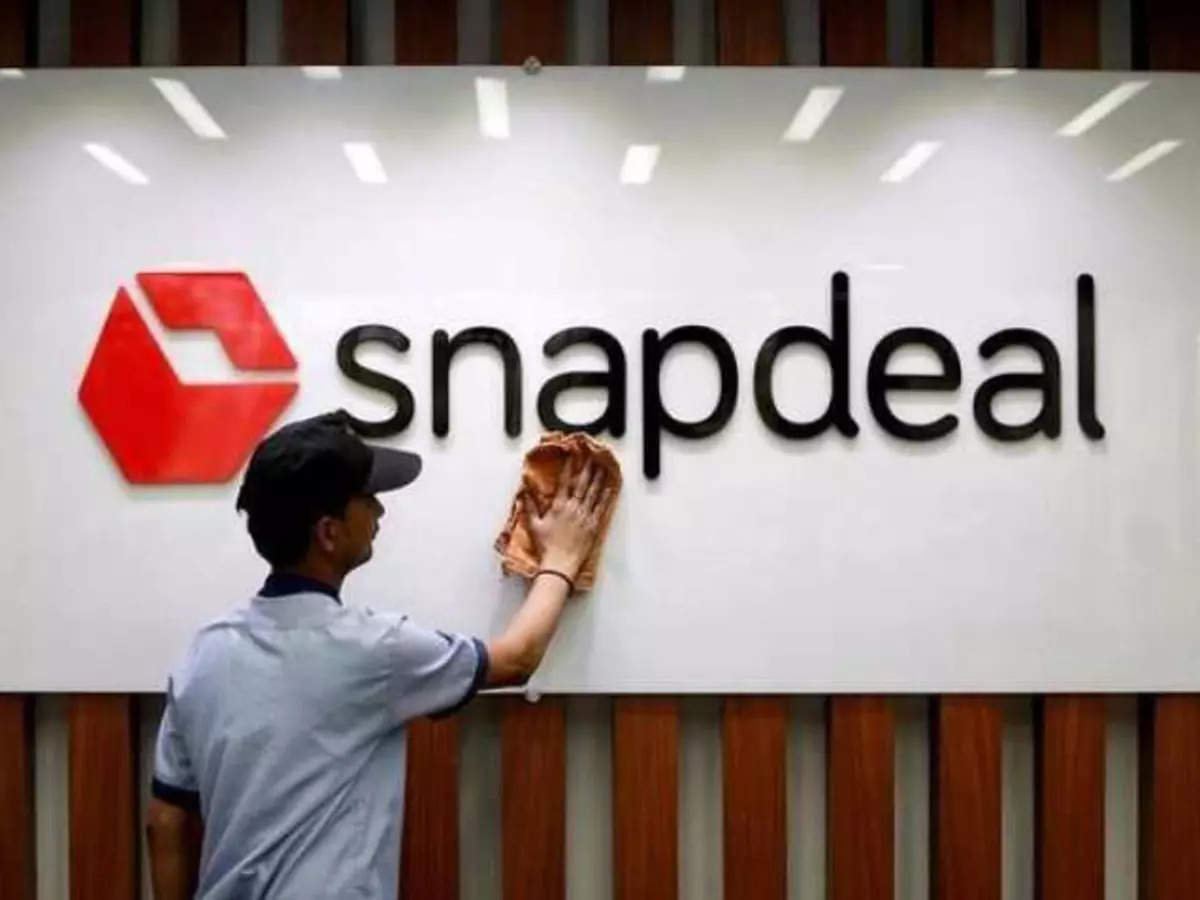Also in this letter:
- CityMall joins hyper-competitive fresh grocery space
- Crypto companies suggest a dual licence regime
- Snapdeal seeks Sebi nod for Rs 1,250 crore IPO
Startups depose before CCI on Google app fees
The Competition Commission of India, which is investigating allegations that Google has abused its app market dominance with its Play Store policies, has begun in-person depositions from a slew of local internet startups, several sources told us.
The CCI is seeking comments from firms including edtech unicorn Unacademy, dating apps TrulyMadly and Tinder, matrimony sites such as Shaadi.com and BharatMatrimony, and a few streaming and gaming platforms, the sources said.
Five key segments: Since June, CCI has asked nearly two dozen startups to explain how Google’s app store policy affects their business and whether Android, which runs on 98% of smartphones in India, enjoys dominance in five key areas – dating, gaming, edtech, OTT and matrimony.
It has sought information about their financials, the impact of Google’s Play Store commissions, their management structure, and whether their apps are also downloaded from app stores other than Google’s.
Pushback: Google is facing pushback from Indian startup founders and app developers, who have asked the government to take action against its app store policies. Following an anonymous complaint, CCI ordered a probe into Google’s app store policies in November 2020.
A Jaipur based non-profit group called “Together We Fight Society” also filed a complaint against Apple over its app store commissions. Yesterday we reported that the company had asked the CCI to dismiss the case, saying it was too small a player in India. It said its market share in India was an “insignificant” 0-5% while Google commanded 90-100% of the market with Android.
Now, CityMall joins hyper-competitive fresh grocery space

A set of new ecommerce companies is getting into fresh groceries, betting that the high-frequency category will give them a larger share of customers’ wallets. The latest of these is CityMall, which plans to start delivering fresh groceries in the next quarter, sources told us.
- Unlike traditional ecommerce, where there is just the buyer and seller, social commerce startups like DealShare, CityMall and Meesho use third parties called resellers, who sell products through social media platforms like WhatsApp and Instagram.
Second time lucky? This is CityMall’s second attempt at delivering fresh groceries, having struggled with supply chain issues the first time around, a person aware of the company’s plans said. It is now working toward building a decentralised supply chain closer to the source and integrating its backend for dry staples and fresh produce, the person added.
The Gurugram-based startup focuses on delivering fast-moving consumer goods, clothes and electronics through a community group-buying model in small towns. Backed by General Catalyst and Elevation Capital, it operates in 15 districts across Uttar Pradesh, Haryana and Delhi-NCR.
Why groceries? People tracking the sector said these new ecommerce companies want consumers to get hooked to their platforms through a cheap, high-frequency segment like groceries and later trade up for more expensive goods such as electronics.
Next gen is here: Two of the largest of these companies – DealShare and Meesho – are trying to differentiate themselves from the older generation of horizontal online retailers such as Amazon and Flipkart. Meesho cofounder Vidit Aatrey told us grocery is a priority offering for the company, and that it will expand its grocery offering Farmiso next year.
Which model is better? DealShare and CityMall are investing in building their own warehouses and supply chain capabilities, while Meesho has rolled out Farmiso through a marketplace model. According to experts tracking the space, the marketplace model can become a dumping ground for produce as there is no standardisation in this category. They said deep supply chain capabilities will be crucial for any company that’s looking to win in this space.
Recent moves: Demand for online groceries has skyrocketed during the pandemic, leading to heightened competition in the space.
Last week we reported that Ninjacart, a supply chain company for fresh produce, had raised $145 million from Flipkart and Walmart. The company also said last week that it had started offering groceries on its five-month-old social commerce platform Shopsy.
And in early December, Swiggy said it had earmarked $700 million for Instamart, its quick grocery delivery service.
Tweet of the day
Crypto companies suggest a dual licence regime

Cryptocurrency players have suggested that the government issue different licences for different types of crypto exchanges.
Fiat on-ramp exchanges, which allow people to convert crypto into rupees and vice-versa, require separate rules and regulations from crypto wallets or exchanges, which only allow trading within the crypto universe, industry stakeholders said.
Quote: “We strongly support a hybrid regulatory body under RBI and Sebi to cater to the emerging blockchain/crypto industry,” said Shivam Thakral, CEO of crypto exchange BuyUcoin.
Why it matters: One of the biggest challenges to the adoption of cryptocurrency is the ease with which fiat money can be converted into crypto and vice-versa. Most Indian crypto exchanges currently allow investors to buy crypto as an investment asset and do not permit transfer of crypto assets off the platform.
Snapdeal seeks Sebi nod for Rs 1,250 crore IPO

Online marketplace Snapdeal has filed its draft red herring prospectus (DRHP) with the country’s markets regulator Sebi (Securities and Exchange Board of India) to raise Rs 1,250 crore through issuance of new shares.
Paring stakes: The IPO will also include an offer for sale (OFS) component in which Snapdeal’s existing investors such as SoftBank, Foxconn, Sequoia Capital and The Ontario Teachers’ Pension Plan Board will sell a total of 30,769,600 shares.
Snapdeal said it will use the Rs 900 crore it plans to raise to fund its organic growth initiatives.
We reported on December 21 that SoftBank was likely to dilute its stake in Snapdeal to below 25% as the etailer wants to list as a professionally managed company. SoftBank owns more than 35% in Snapdeal and has significant influence over the firm, as per the DRHP.
Over the past three to four years, the company has largely focussed on selling unbranded products and reducing its monthly cash burn. In 2017, it walked away from a potential merger with bigger rival Flipkart, which is now majority-owned by Walmart.
HealthQuad raises Rs 1,134.5 crore towards pre-final close of its second fund

HealthQuad, an India-focussed healthcare venture capital firm run by Quadria Capital, has raised Rs 1,134.5 crore towards the pre-final close of its second fund. Its initial fund size was Rs 550 crore, with a green shoe option of a further Rs 550 crore.
Quote: “The size of the fund is likely to increase by another 20-25% depending on investors’ agreement,” Charles-Antoine Janssen, cofounder and chief investment officer of HealthQuad, told us.
The fund has received commitments from global financial and strategic institutions, including some global pharma and health-tech companies, development financial institutions and large European conglomerates, said Sunil Thakur, partner at Quadria Capital. “80% of the fund has been raised from overseas investors, and 20% from domestic institutions,” Thakur said. A final close is expected by March 2022.
Other Done Deals
■ Jumbotail, a business-to-business e-commerce company that supplies groceries to mom-and-pop stores, said that it has raised a Series C round of $85 million. The funding was led by Artal Asia Pte. Ltd., an affiliate of Invus, a global equity investment firm with over $10 billion of capital under management.
■ Captain Fresh, a business-to-business (B2B) online marketplace for seafood, has raised $40 million in a new round of funding co-led by Tiger Global and Prosus Ventures.
■ Flo Mobility, a startup building vision-based autonomous driving technologies for a range of vehicles, has raised $400,000 from DevX Venture Fund, Venture Garage Angels and Blume Founders Fund, apart from other angels.
MapmyIndia shares list at 53% premium on debut

Shares of CE Info Systems, parent firm of MapmyIndia, made a strong debut on Dalal Street on Tuesday.
Listing pop: The stock debuted at Rs 1,581 on the Bombay Stock Exchange, a 53% premium over the issue price of Rs 1,033, and at Rs 1,565 on the National Stock Exchange, 51% more than the issue price.
However, it witnessed strong profit booking during the session as the stock tanked about 19% from its issue price to a low of Rs 1,282.20 on the BSE. It closed the day at Rs 1394.55. A day ahead of its debut, the scrip was commanding a premium of Rs 500 per share in the grey market, hurt by the dampened sentiment at Dalal Street.
Also read: MapmyIndia founders strike gold on stellar debut, now worth $586 mn
Strong IPO: The Rs 1,039.61 crore IPO was open for subscription from December 9-13. The company had fixed the price band in the range of Rs 1,000-1,033 per share. The issue was subscribed 155 times, thanks to strong bidding from QIB and HNI investors. Their portions were subscribed 196 times and 425 times, respectively, while the retail quota was subscribed 15 times.
Other Top Stories By Our Reporters
Adar Poonawalla picks up 20% stake in JetSynthesys’ Wakau: Adar Poonawalla, the chief executive of vaccine maker Serum Institute of India, has picked up a 20% stake in Wakau Interactive, a subsidiary of digital entertainment and technology company JetSynthesys, for an undisclosed sum.
20 ‘anti-India’ YouTube channels, two websites banned under new IT rules: India banned 20 YouTube channels and two websites on Monday for allegedly running anti-India propaganda from Pakistan, invoking for the first time the emergency powers under the newly notified intermediary guidelines and digital media ethics code in the IT Act.
Elon Musk, Jack Dorsey take digs at Web3: Tesla chief executive Elon Musk, as well known for his Twitter controversies as his business acumen, took a dig at one of the biggest trends in tech in a tweet on Tuesday.
Indian IT expected to grow dollar revenue by 9-12% in FY22: Indian IT services companies are expected to grow by 9-12% in terms of US dollar revenue in FY 2022 according to a report by ICRA.
Global Picks We Are Reading
























